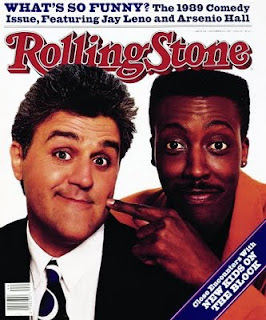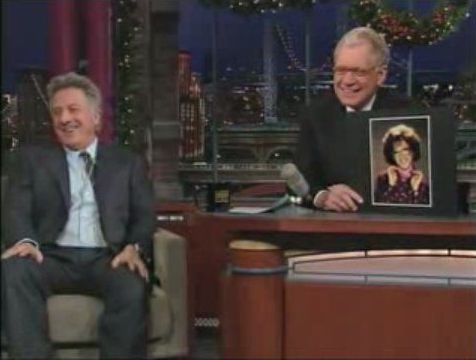I turned 34 on Friday. And right before I went to bed that night I noticed something about the "wallpaper" on my computer screen, which changes every 30 minutes at the MacBook's whim.
 For those of you without a magnifying glass, the photo on the left features Michael McDonald and the stars of 1986's Running Scared, Billy Crystal and Gregory Hines; it's a still from the music video for McDonald's "Sweet Freedom." That photo's been in the wallpaper rotation for several years now, but I didn't notice the number on Hines's jersey until Friday night. It also happens to be the number worn by Chicago Bears running back Walter Payton, who in 1986 led his team to a Super Bowl victory. Running Scared is set in Chicago and was filmed there during the Bears' 1985 season, when they lost only one of their 16 regular-season games.
For those of you without a magnifying glass, the photo on the left features Michael McDonald and the stars of 1986's Running Scared, Billy Crystal and Gregory Hines; it's a still from the music video for McDonald's "Sweet Freedom." That photo's been in the wallpaper rotation for several years now, but I didn't notice the number on Hines's jersey until Friday night. It also happens to be the number worn by Chicago Bears running back Walter Payton, who in 1986 led his team to a Super Bowl victory. Running Scared is set in Chicago and was filmed there during the Bears' 1985 season, when they lost only one of their 16 regular-season games.
Shortly after I turned 33, I read a newspaper article that quoted statistics from The Death of the Grownup: How America's Arrested Development Is Bringing Down Western Civilization, including this factoid: "The MacArthur Foundation has funded a research project that argues that the 'transition to adulthood' doesn't end till age 34."
When I read that last year I thought, "Woo-hoo! One more year!" Of course, one year later, with almost nine months of unemployment taking a bite out of my self-esteem, Officially Authorized Adulthood® isn't making a strong first impression. Lucky for it, I believe in second chances.


























